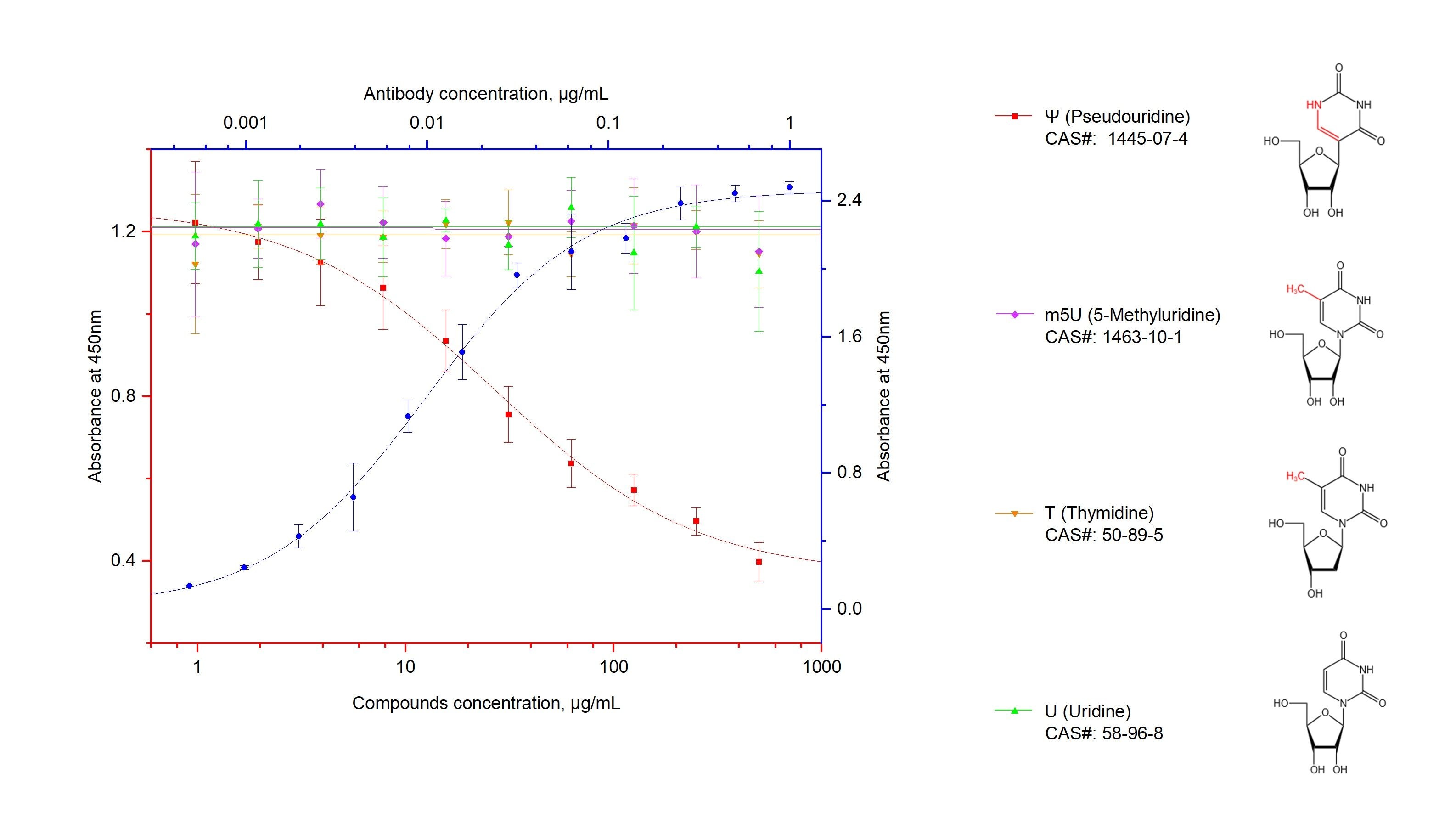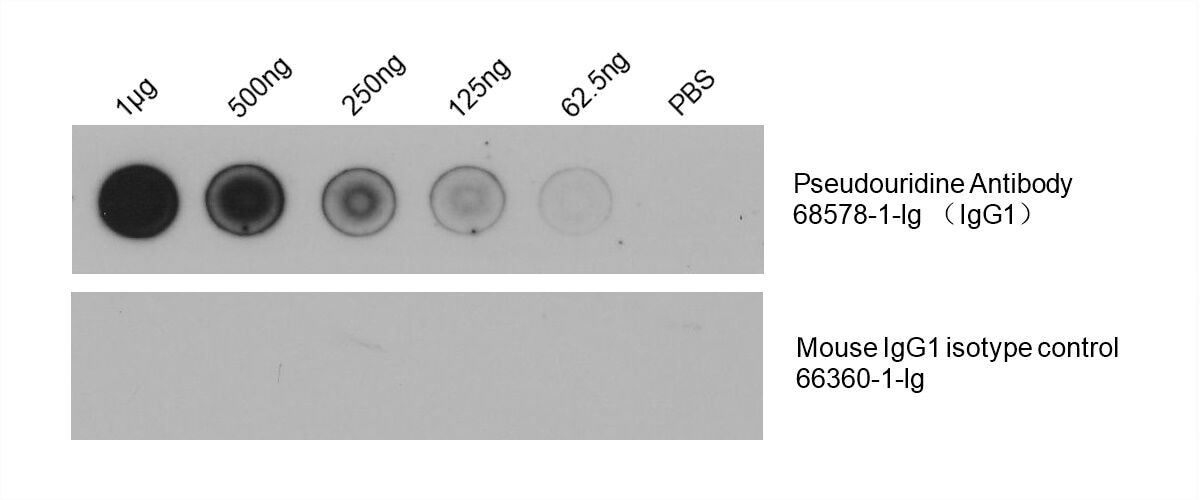Pseudouridine Monoklonaler Antikörper
Pseudouridine Monoklonal Antikörper für Dot Blot, ELISA
Wirt / Isotyp
Maus / IgG1
Getestete Reaktivität
chemical compound und mehr (1)
Anwendung
Dot Blot, ELISA
Konjugation
Unkonjugiert
CloneNo.
1G7C7
Kat-Nr. : 68578-1-Ig
Synonyme
Geprüfte Anwendungen
| Erfolgreiche Detektion in ELISA | Pseudouridine |
| Erfolgreiche Detektion in Dot Blot | RNA |
Empfohlene Verdünnung
| Anwendung | Verdünnung |
|---|---|
| Enzyme-linked Immunosorbent Assay (ELISA) | ELISA : 1:2000-1:20000 |
| DOT BLOT | DOT BLOT : 1:1000-1:4000 |
| It is recommended that this reagent should be titrated in each testing system to obtain optimal results. | |
| Sample-dependent, check data in validation data gallery | |
Produktinformation
68578-1-Ig bindet in Dot Blot, ELISA Pseudouridine und zeigt Reaktivität mit chemical compound
| Getestete Reaktivität | chemical compound |
| In Publikationen genannte Reaktivität | human |
| Wirt / Isotyp | Maus / IgG1 |
| Klonalität | Monoklonal |
| Typ | Antikörper |
| Immunogen | PTG |
| Vollständiger Name | Pseudouridine |
| Gene symbol | |
| Gene ID (NCBI) | |
| Konjugation | Unkonjugiert |
| Form | Liquid |
| Reinigungsmethode | Protein-G-Reinigung |
| Lagerungspuffer | PBS with 0.02% sodium azide and 50% glycerol |
| Lagerungsbedingungen | Bei -20°C lagern. Nach dem Versand ein Jahr lang stabil Aliquotieren ist bei -20oC Lagerung nicht notwendig. 20ul Größen enthalten 0,1% BSA. |
Hintergrundinformationen
Pseudouridine is an isomer of the nucleoside uridine in which the uracil is attached via a carbon-carbon instead of a nitrogen-carbon glycosidic bond. Pseudouridine is the most abundant RNA modification in cellular RNA (PMID: 29104216). After transcription and following synthesis, RNA can be modified with over 100 chemically distinct modifications. These can potentially regulate RNA expression post-transcriptionally, in addition to the four standard nucleotides and play a variety of roles in the cell including translation, localization and stabilization of RNA. Pseudouridine in rRNA and tRNA has been shown to fine-tune and stabilize the regional structure and help maintain their functions in mRNA decoding, ribosome assembly, processing and translation (PMID: 10902565, PMID: 23391857, PMID: 28045575). Pseudouridine in snRNA has been shown to enhance spliceosomal RNA-pre-mRNA interaction to facilitate splicing regulation (PMID 27268497).
Protocol for Dot Blot:
https://www.ptglab.com/protocol/68578-1-IgDotBlot.pdf
Publikationen
| Species | Application | Title |
|---|---|---|
Cell Signal PUS1 facilitates cell migration in clear cell renal cell carcinoma through the promotion of mRNA pseudouridylation and the stabilization of the SMOX gene | ||
Gastroenterol Rep (Oxf) TRUB1 is a novel biomarker for promoting malignancy in colorectal cancer via NFκB signaling |



